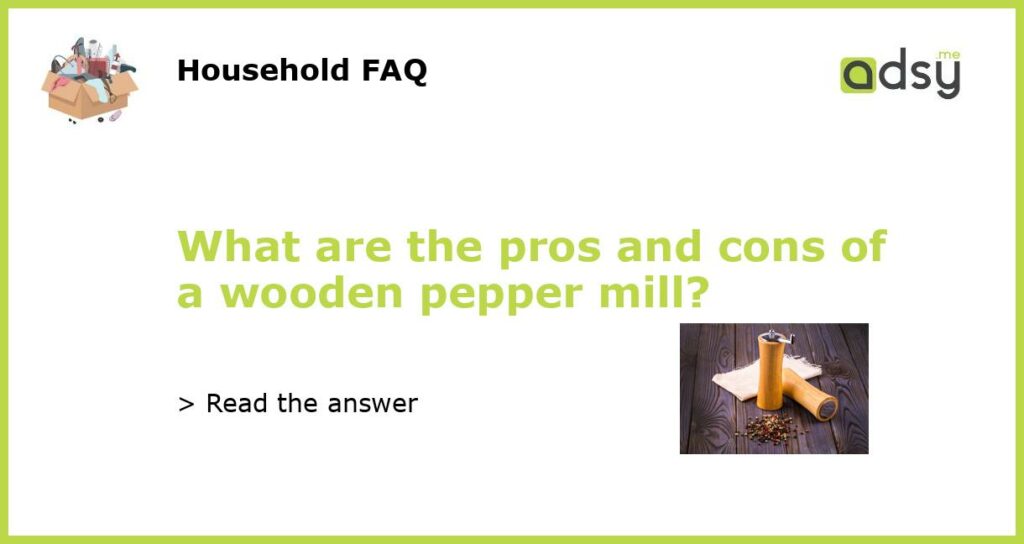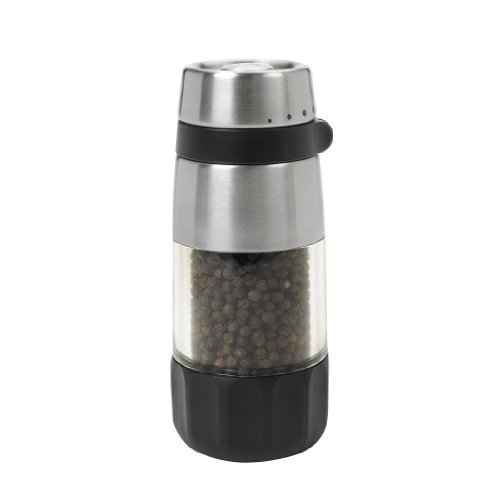Pros of a Wooden Pepper Mill
Wooden pepper mills have been a staple in kitchens for centuries, and for good reason. Here are some of the pros of using a wooden pepper mill:
Aesthetically pleasing
One of the main reasons people choose wooden pepper mills is their aesthetic appeal. Wood adds warmth and charm to any kitchen decor, and a wooden pepper mill can be a beautiful addition to your countertop or dining table. Whether you prefer a classic, rustic look or a more modern design, there are plenty of wooden pepper mills available to match your style.
Durable and long-lasting
Wooden pepper mills are known for their durability and longevity. Unlike their plastic or metal counterparts, wooden mills are less prone to cracking or breaking. With proper care, a well-made wooden pepper mill can last for many years, making it a worthwhile investment for any home cook or professional chef.
Natural and eco-friendly
Choosing a wooden pepper mill is an environmentally conscious choice. Wood is a renewable resource, and many manufacturers use sustainably sourced wood to make their mills. By opting for a wooden mill, you can reduce your carbon footprint and contribute to a more sustainable future.
Cons of a Wooden Pepper Mill
While wooden pepper mills have numerous advantages, there are also some drawbacks to consider before making a purchase. Here are a few cons of using a wooden pepper mill:
Absorbs flavors and odors
Unlike stainless steel or ceramic mills, wooden pepper mills have a tendency to absorb flavors and odors from the spices they grind. This can be particularly problematic if you plan to use the mill for different types of spices, as the flavors may mix and create undesirable tastes. Some people prefer to have separate wooden mills for different spices to avoid this issue.
Requires regular maintenance
Wooden pepper mills need regular maintenance to keep them in optimal condition. The natural oils in wood can dry out over time, causing the mill to become stiff or squeaky. To prevent this, it is necessary to periodically oil the mill with food-safe oils. Additionally, wooden mills should be kept away from excessive moisture or heat, as these can damage the wood.
Potential for mold or mildew
Due to their organic nature, wooden pepper mills can be susceptible to mold or mildew if not properly cared for. Moisture can cause these unwanted growths to develop, which can be both unsightly and unhealthy. Regular cleaning and drying of the mill are essential to prevent mold or mildew from forming.
Wooden pepper mills offer a classic and timeless appeal to any kitchen. They are durable, eco-friendly, and can last for generations with proper care. However, they also require regular maintenance and are prone to absorbing flavors and odors. Taking these pros and cons into consideration will help you determine whether a wooden pepper mill is the right choice for your kitchen.






